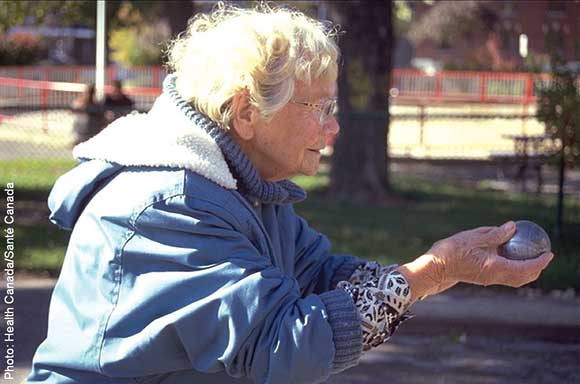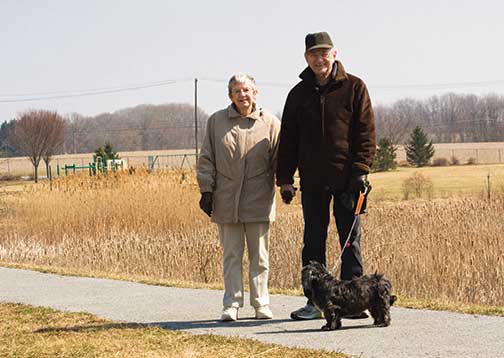Good Mental Health
by Gim Ong, MBA, MDiv
As we age, we tend to be forgetful. The fear of losing brain capacity & memory looms large for the 14 million plus baby boomers in Canada.
Many of us worry about Alzheimer’s disease, but statistics show 80% of us will never get Alzheimer’s. Regardless of genetics or family history, the choices we make in lifestyle can slow the progression of age-related cognitive decline.
A decade ago, many believed that the brains of older adults could not grow or develop. In fact, our brains grow and change throughout life. Research suggests that learning a new skill, such as playing bridge or chess, speaking a foreign language, learning to play a musical instrument, or even dancing, creates new pathways in the brain. These new neural pathways improve cognitive function.
Our attitudes, lifestyle, and relationships can also improve our brain and memory function. Here are some tips:
- Think positive thoughts and focus on solutions to your problems.
- Reach out to your network of friends and family.
- Exercise to release endorphins and improve blood flow to the brain.
- Eat right.
- Learn to relax, and stop worrying.
- Smile – a smiling person releases feel-good hormones.
- Hug a lot. It has been proven to reduce stress.

Bridge is an intellectually stimulating game that keeps your mind sharp. It is a game for people who seek intelligent diversions in a social setting. It is both fast-paced and mentally challenging. Each hand takes 5 to 10 minutes to play, and each hand presents a new mystery to solve. It is a great activity for social reasons too – bridge players are happy. When you’re happy, you’re a healthier person.
We can maintain and even improve our brain health as we age. An active mind boosts the body’s immune system and keeps you healthy and wise. We do not cease to play because we grow old. We grow old because we cease to play.
About the Author
Gim Ong is a free lance writer. He holds graduate degrees in business, counseling and theology. He is also the Chairperson of the Canadian Bridge Federation Charitable Fund.
We do not cease to play because we grow old. We grow old because we cease to play.
Click Here for print PDF file – Mental Health – Good-mental health
Mobility A “Use it or Lose it” Phenomenon
by Sandra Webber, PhD
Most people don’t need to be convinced of the importance of being able to get around. It’s vital for independence. It means being out there in the community when and where we choose. It means easy connections to friends and family. Mobility is closely linked to both physical and psychological health.
When mobility is impaired by problems such as arthritis or being overweight, activities become restricted. This results in physical deconditioning – loss of strength, balance, and co-ordination.
Mobility limitation has been shown to be an early predictor of physical disability, depression, falls, loss of independence, and institutionalization.
To maintain mobility, it is important to stay active in safe ways. The traditional “use it or lose it” cliché applies. Any form of walking – outdoors, in the hallways, at the mall – is a good idea. Walking builds cardiovascular fitness, muscle endurance, balance, and bone mass. The more we walk, the better we respond to challenges in the environment, such as walking uphill or over uneven ground. That reduces the risk of falls.
Any aerobic activity, such as walking, swimming, dancing, or cycling, helps with weight control and improves the symptoms of arthritis. This kind of exercise strengthens the large muscles in the hips and legs – crucial for things like getting up from a chair and climbing stairs.

For more ideas on keeping fit and mobile, check out Canada’s Physical Activity Guide to Healthy Active Living for Older Adults, available on the Public Health Agency of Canada website.
About the Author
Sandra Webber has a background in physiotherapy and teaches at the University of Saskatchewan. Her research focuses on mobility issues in older adults, the importance of strength and power, and physical activity after knee and hip joint replacements.
A few more tips on healthy aging:
Have your doctor or pharmacist review your medications regularly. This ensures you are getting the best treatment effects and a minimum of side effects.
If you drive, get your vision checked regularly.
Keep your mind active. Do things that challenge cognition, such as reading, playing chess, card games, crossword puzzles, or crafts.
Try to stay “connected.” Maintain a wide social network. Stay abreast of the transportation options in your community. People who do this have more mobility choices available to them.
Click Here for print PDF file – Active Living – Mobility Use it or Lose it Phenomenon

- Categories
Recent Posts

